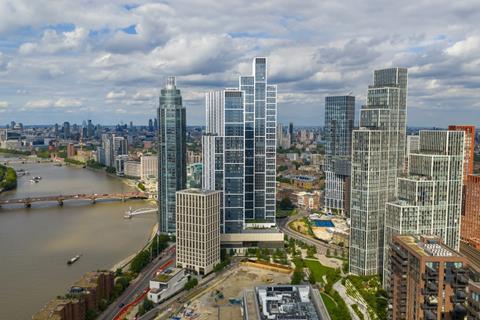UK ranks higher than France and Japan but lower than the US and China when it comes to project confidence, research has found
Uncertainty around project delivery has wiped nearly £2 trillion from global construction value in 2025, more than the GDP of Italy, according to a new report by Currie & Brown.
A newly published survey of more than 1,000 global companies found persistent uncertainty caused by material price inflation, planning delays and skills shortages has resulted in financial losses equivalent to 13.7% of respondents’ pipelines.
Companies which participated in the survey included those working in healthcare, real estate, hospitality, pharmaceuticals, renewable energy, education and high tech, spanning all regions of the globe with the largest firms employing 10,000 people.

They had an average pipeline value of £9.6bn, with average financial losses amounting to around £1.6bn per company, enough to fund up to 40 schools, with the total value of losses enough to build up to 500 new airports.
The report scored individual countries based on their levels of confidence in project delivery based on metrics including time and budget, risk and sustainability.
The UK scored 55 out of 100 for project confidence, the same as Germany and slightly higher than France, which scored 49, and Japan, which scored 51, but lower than the US, which scored 59.
The countries with the highest project delivery confidence were China and India, which both scored 61.
Currie & Brown group chief executive officer Alan Manuel described the research as a “wake up call”. He called for construction firms to “dismantle outdated systems” and “find new ways to deliver in a volatile world”.
“The construction sector has always experienced its fair share of volatility. But this goes well beyond the usual cycle. In over 40 years in the industry, I’ve not seen such a persistently uncertain market,” Manuel said.
“Part of the challenge lies in how we work. External factors such as rising costs, political shifts and weather events play a clear role.
“But systemic issues are just as critical. Outdated procurement, misaligned objectives and a culture that accepts billion-dollar projects without complete designs continue to embed risk.
“If we don’t control these challenges, the disruption will only grow, which we can’t allow because construction underpins economies and improves lives. This industry is too important to be allowed to fall behind.”
The report provided a series of recommendations to increase confidence in project delivery, including cutting regulatory barriers to speed up the planning process, improving pipeline visibility for public projects and increasing the use of repeatable designs.
The report also found firms which had embedded the use of AI into their operations were on average far more confident about the delivery of their projects.


























No comments yet